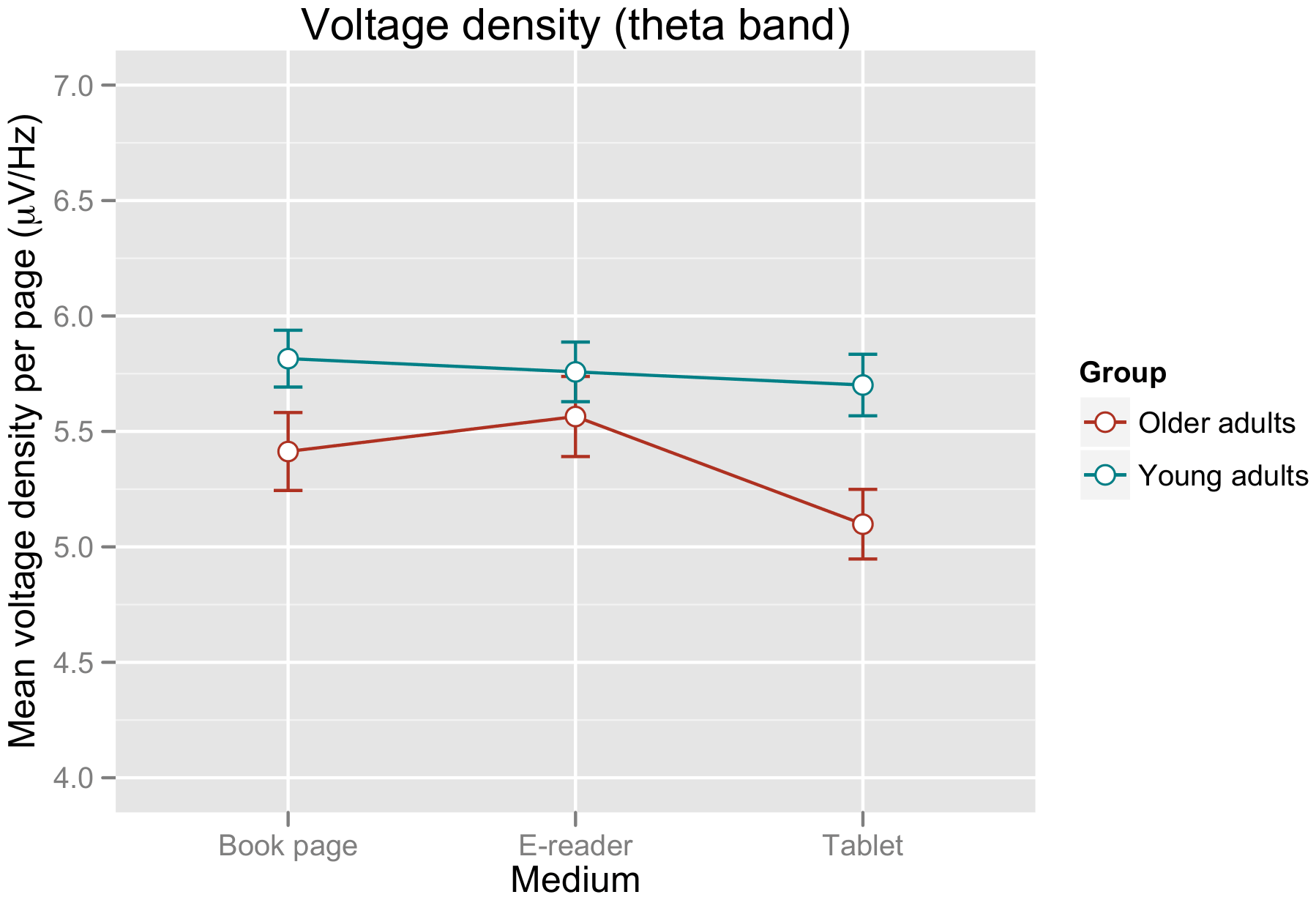Paper or Tablet? Reading Recall and Comprehension
What effect do digital devices have on our digital brains? To uncover the influence on learning of using digital tablets for reading, the Coast Guard Leadership Development Center conducted an experiment to ascertain differences in recall and comprehension between tablet and paper readers.
Anne Niccoli | September 28, 2015
 |
| "... the results clearly showed that the test subjects spent far less energy and time reading on a tablet than was spent reading on the ereader or paper ..." Source: http://the-digital-reader.com/2013/02/09/study-summary-its-easier-for-some-to-read-on-lcd-screens-than-in-a-paper-book/ |
<more at http://er.educause.edu/articles/2015/9/paper-or-tablet-reading-recall-and-comprehension; related links: http://www.scientificamerican.com/article/reading-paper-screens/ (The Reading Brain in the Digital Age: The Science of Paper versus Screens. E-readers and tablets are becoming more popular as such technologies improve, but research suggests that reading on paper still boasts unique advantages. April 11, 2013) and http://the-digital-reader.com/2013/02/09/study-summary-its-easier-for-some-to-read-on-lcd-screens-than-in-a-paper-book/ (Study: It’s Easier (For Some) to Read on LCD Screens Than in a Paper Book. February 9, 2013)>

No comments:
Post a Comment